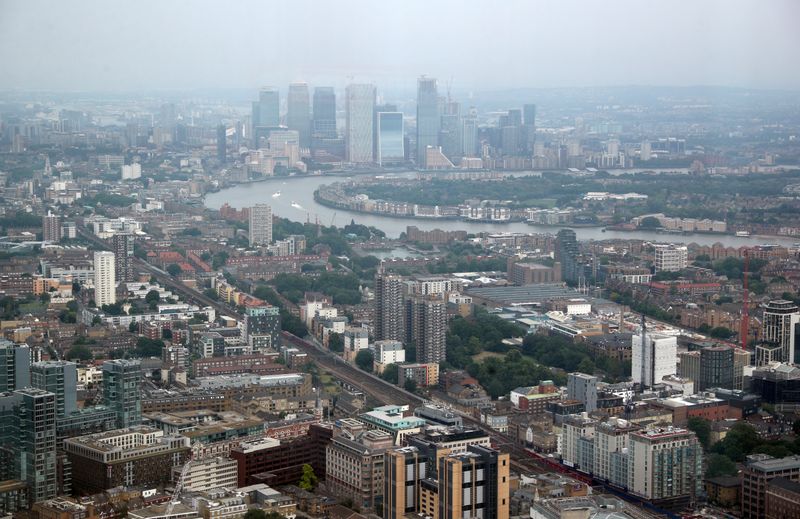By Andy Bruce
LONDON (Reuters) - British businesses endured their worst downturn since mid-2016 in the run-up to Prime Minister Boris Johnson's landslide election victory last week, according to a survey published on Monday.
The 'flash' early reading of the IHS Markit/CIPS UK Purchasing Managers' Indexes (PMI) for Britain showed that the decline in both the services and manufacturing sectors accelerated unexpectedly in December.
The readings, which pushed up British government bond prices, suggested the world's fifth-biggest economy is on course to contract in the fourth quarter, survey compiler IHS Markit said.
However, the PMIs have previously overstated weakness in the economy.
"The latest decline in the ... PMIs is another stark reminder that the British economy is unlikely to be on the cusp of a sharp turnaround after last week's election result," said James Smith, an economist at ING.
Other economists were more upbeat.
Samuel Tombs at consultancy Pantheon Macroeconomics said quarter-on-quarter growth could reach 0.4% in early 2020 as companies recommit to investment projects in light of the decisive election result.
Johnson, bolstered by a majority of 80 seats in parliament, has said he will increase government spending and that approval of his Brexit plan will end uncertainty and boost investment by the private sector.
But he will have less leeway to loosen the government's purse strings than previously thought.
Britain's budget forecasters said on Monday that changes to the way statisticians measure borrowing would add about 20 billion pounds ($26 billion) a year to the budget deficit.
(Graphic: UK PMI survey veers further into BoE rate cut territory - https://fingfx.thomsonreuters.com/gfx/polling/1/645/641/Annotation%202019-12-16%20111550.png)
The composite PMI, which combines the services business activity and services and manufacturing output readings, fell to 48.5 from 49.3, its lowest level since July 2016, just after the Brexit vote.
Readings below 50 denote contraction.
IHS Markit said the bright spot in its survey came from gauges of future sentiment, rather than movements in new orders or output.
This is only the second month for which IHS Markit has released flash PMIs for Britain. November's flash estimates were revised up significantly when final data came out.
The flash PMI for the dominant services sector fell to 49.0 in December from 49.3 in November, its lowest level since July 2016. A Reuters poll of economists had pointed to an improved reading of 49.5.
The manufacturing PMI dropped to 47.4 from 48.9 -- again weaker than forecast -- as a stockpiling drive before the aborted Oct. 31 Brexit deadline evaporated. The survey's gauge of factory output fell to its lowest level since July 2012.

The data was collected between Dec. 5 and Dec. 12, the day of the election. Final versions of the manufacturing and services PMIs will be released on Jan. 2 and Jan. 6.